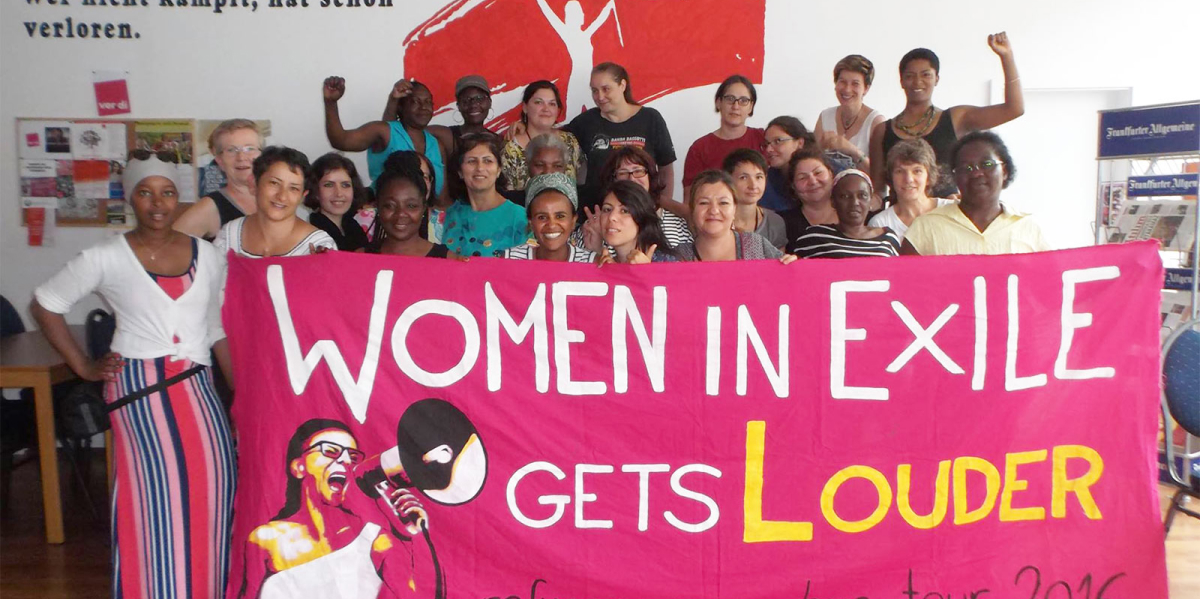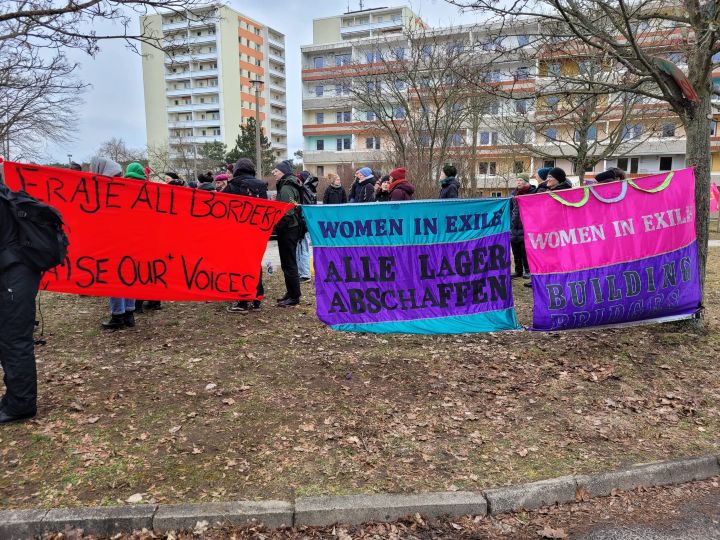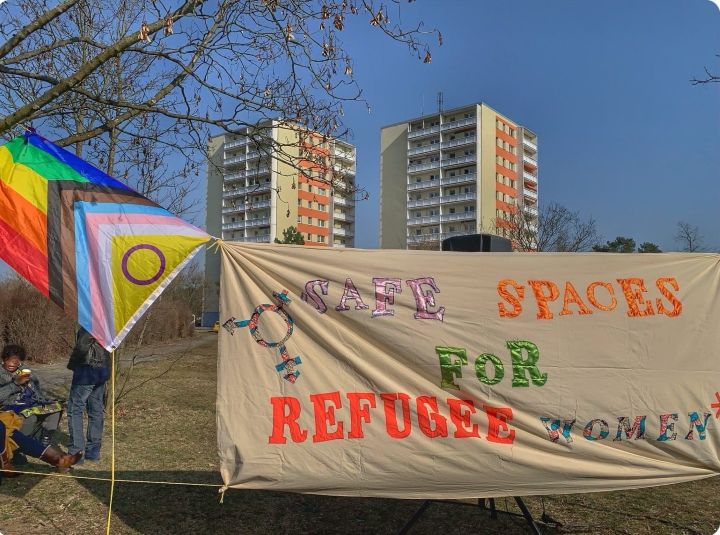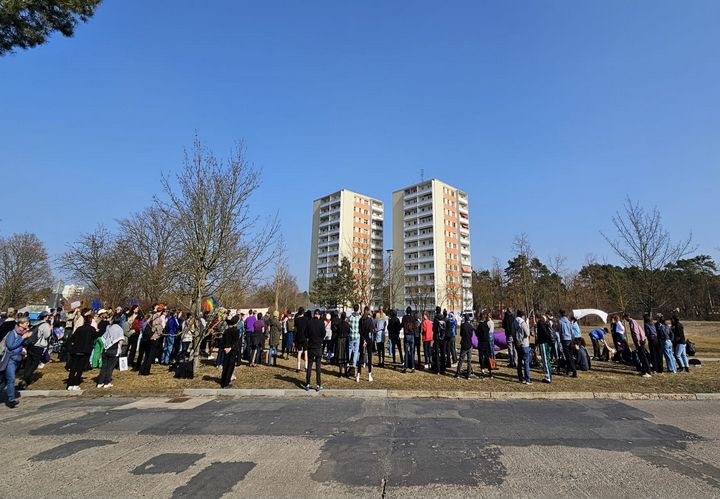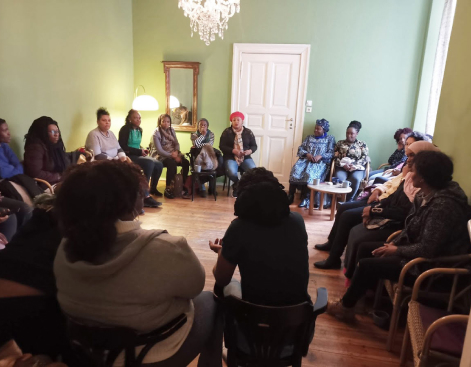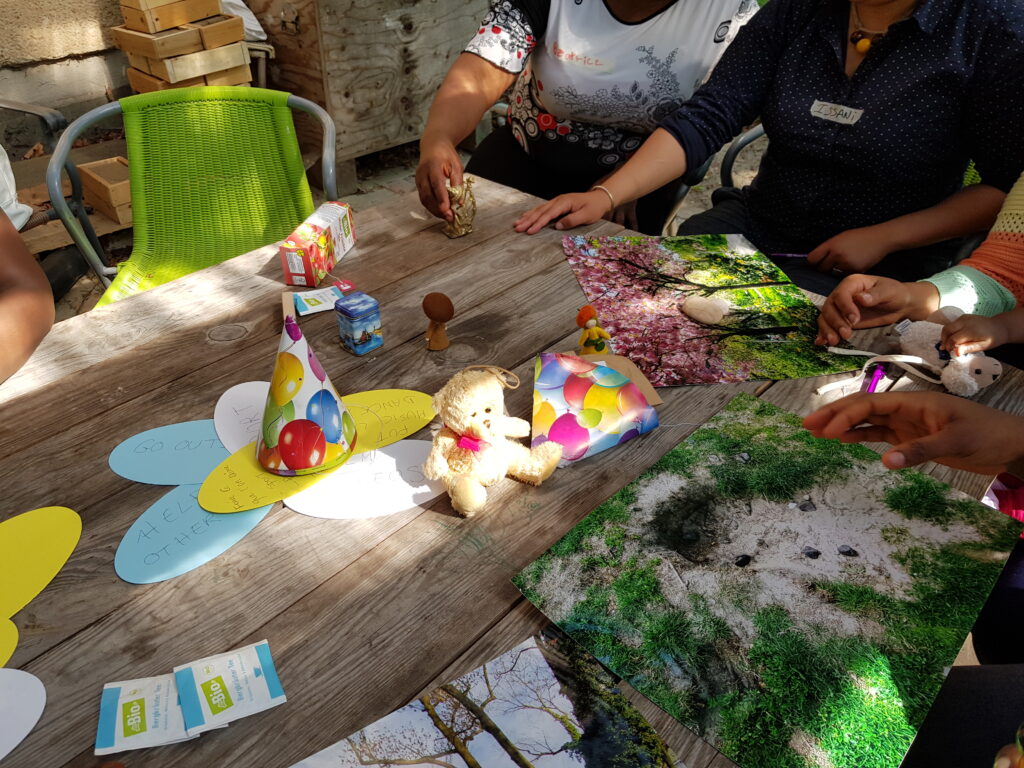
Our last health seminar was facilitated by experts for migrants and refugees from KommMit who offer psychological counseling for refugees in Berlin/Brandenburg.
Many women came with a lot of questions such as: can dizziness and sleeping problems be a psychological problem? I have a lot of stress and problems -What can I do ? How can I help somebody else? What can one do if psycho-therapy doesn’t help?
In the Seminar we learnt how different happenings affect the psychological health of many people especially refugees. For the refugee these happenings start from their country of origin to the route they follow and the situation they live in when they arrive. They are so many factors, especially the perception of the outer factors that influence on the psyche, so to speak the thoughts, emotions and behavior. This includes asylum procedures, housing, discrimination, recreation, access to support structures, social environment and support from others eg. family, friends.
One typical complaint from refugee women is depression, this affects many women. Many of them doesn’t recognise it as a medical condition because the symptoms do not seem serious but its a very sensitive condition. Most of the women who experience this condition lack desire of fun, energy and lose of appetite or of eating constantly. Other symptoms and issues people have to deal with are memory loss, hallucinations, feeling nervous, anger and fear. Some people think a lot, have sleeping problems, isolate themselves and experience huge sadness. In these cases many people feel they just want to be alone and are unhappy most of the time. When these conditions exceeds due to the isolation of the lagers, the insecurity of stay and without treatment they become traumatic. This can then go to the level of negativity which leads to suicidal to many people who can not have self control.
Difficulties in concentration, trouble in sleeping leading to nightmare, headache and respiratory problems are main things that affect traumatized people. In severe cases it is good to be treated by a psychiatrist and should be followed by multiple therapy.
Many asylum seekers can not get this treatment due to their health insurance limitations. This is still a big problem and many people lose the perspective of life due to lack of good treatment. In worst case this can end up with suicidal.
We also shared ways how we can deal with the stress and saw how important the spaces and gatherings from our group are where the women can forget about the stress and feel empowered.
